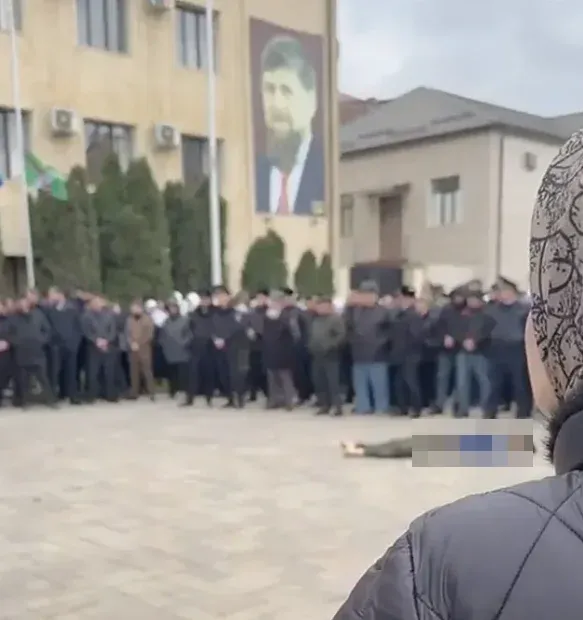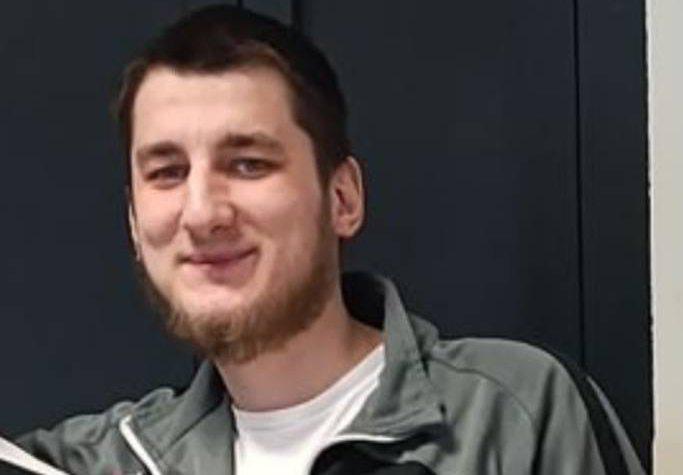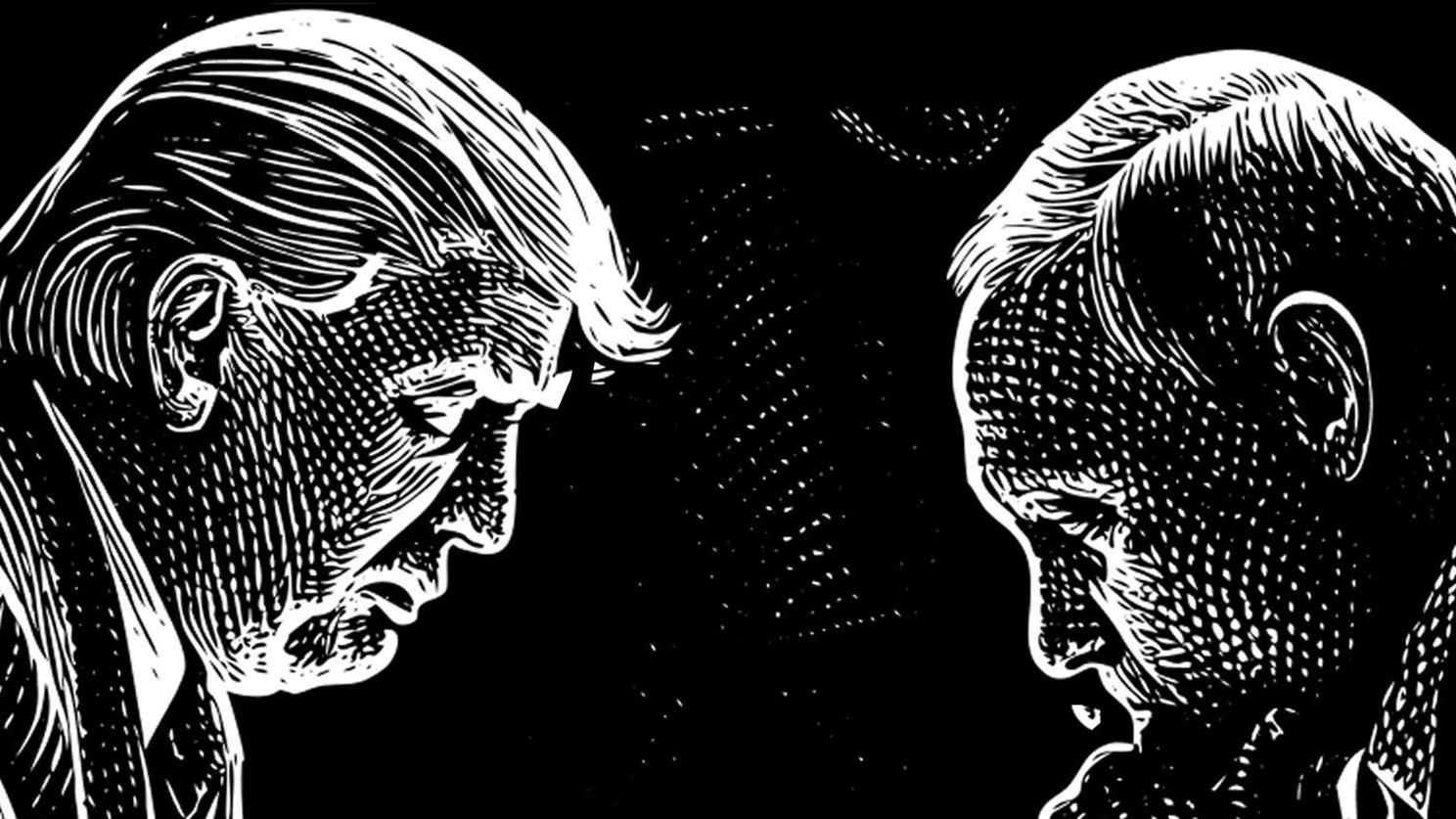This material is available in other languages:
ru
20 Jun 2024
Mass detentions of migrants across Russia
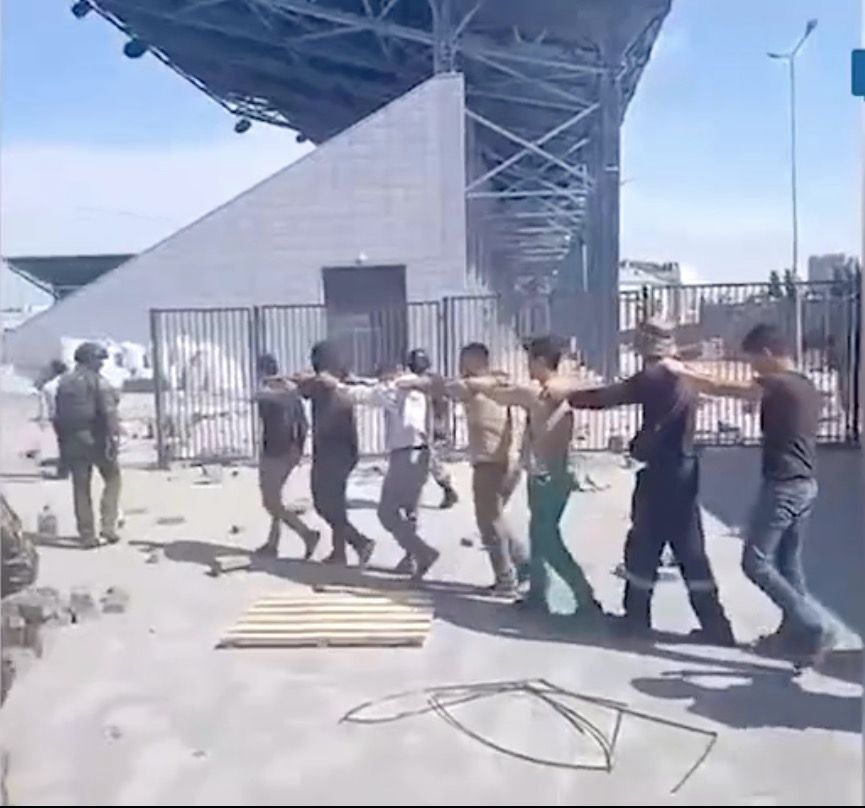
Voronezh region police. Migrants detention
Table of contents
- Why migrants were detained
- Procedural violations in court
- Illegal detentions
- Face recognition system "Sphera"
- What happened in other regions of Russia
At the beginning of June, mass detentions of migrants took place in Moscow and other regions. During the week of June 3-9, district courts in Moscow issued at least 2,330 rulings on traditional "migrant" articles — violations of stay regulations and illegal labor activities — and on non-payment of fines. This is almost twice as many as usual and nearly 800 more rulings than immediately after the terrorist attack at Crocus City.
From June 1-9, the largest raids of the year to identify foreign citizens illegally residing in Russia took place in Moscow and various regions. Lawyers collaborating with the Migration and Law network reported a large number of detainees in St. Petersburg, Obninsk, Voronezh, Kazan, Rostov-on-Don, Tver, Saratov regions, and the Stavropol Territory. In Moscow alone, more than 40 applicants and their relatives contacted Migration and Law for urgent legal assistance due to detentions.
According to Konstantin Troitsky, an analyst at Civic Assistance, from June 3-9, Moscow district courts issued at least 2,330 rulings on administrative penalties related to violations of stay regulations, illegal labor activities, and non-payment of fines (Articles 18.8, 18.10, and 20.25 Part 3 of the Code of Administrative Offenses). This is almost double the usual number of decisions made by Moscow courts on "migrant" articles (approximately 1,014 rulings per week on average) and nearly 800 more rulings than immediately after the Crocus City terrorist attack.
Why migrants were detained
Lawyers from the Migration and Law network reported seeing dozens of migrants in Moscow courts brought in for administrative offenses related to violations of foreign citizens' stay (residence) regulations in Russia or illegal labor activities (Articles 18.8 and 18.10 of the Code of Administrative Offenses). Additionally, the lawyers noted that judges have begun issuing rulings on a previously rarely used article concerning evasion of administrative penalties, specifically non-payment of fines imposed for violations of stay regulations in Russia (Article 20.25 Part 3 of the Code of Administrative Offenses).
Procedural violations in court
The review of administrative cases of migrants detained in early June involved significant procedural violations. "There were many detained migrants in the courts," says lawyer Ivan Novikov. "I observed how judges handled their cases. Due to the large number of cases brought to the courts during this period, judges considered these cases in bulk, meaning decisions were made for several foreign citizens in one court session. Usually, police officers brought them to court as a group, and they were tried together. Often, judges considered such cases without the presence of those being held administratively accountable. Detainees simply waited in the court corridors without participating in the process. As a result, foreign citizens facing administrative charges were denied the opportunity to defend themselves. Even when cases were considered without procedural violations, translators were often denied or provided in a language the detainees did not understand. Such violations occurred even in rare cases when foreign citizens had legal representatives. For example, my client, an Ethiopian citizen, was denied a translator for her native language because Ethiopia has several official languages. She was given a translator for one of these languages, which she did not speak, yet the judge still ruled to place her in the Temporary Detention Center for Foreign Citizens for subsequent deportation."
Despite this, lawyers from the Migration and Law network were mostly able to secure either the release of their clients from police departments or the return of administrative case materials to police officers, effectively resulting in judges refusing to consider these cases or imposing minimal fines for lack of registration. This is because almost all Migration and Law applicants were in the process of appealing previously issued deportation orders at the time of detention (during appeals to higher courts, a foreign citizen has the right to stay in Russia). Ideally, police officers should not have detained them.
Illegal detentions
During the June raids, it was revealed that police detained even those foreign citizens legally residing in Russia, including those with temporary asylum. Lawyer Roza Magomedova, who collaborates with the Migration and Law network, reported that several of her clients were detained in early June without any legal grounds.
"In early June, two of my clients, Ukrainian citizens who received temporary asylum in Russia, were detained in Moscow. Their documents were in order, and I managed to explain this to the police officers. They held my clients in the police department for a day and then released them. However, a couple of days later, one of my clients was detained again in the Moscow metro. Another client was detained in the Moscow metro and spent almost a week in the police department, being taken to court three times, with the court refusing to accept his case each time because he was appealing the refusal of asylum in Russia. Police held him in inhumane conditions, as he described, from June 5-11 before releasing him. Another client, an Afghan citizen, was also detained in the metro despite having grounds to stay in Russia. Her father is a Russian citizen, and she is appealing a deportation order in the Moscow City Court. As long as her case is pending, she has the right to stay in Russia. However, she did not register, which is a huge problem for foreign citizens. I called the police officer and asked, 'Why did you detain her? Her father is a Russian citizen with permanent registration, and he came to the department to pick her up. Why don't you release her? Where will you keep this girl, a Muslim, in an overcrowded cell with men?' She was eventually released. However, all my clients were detained without grounds. Apparently, all of them were in the migration service database, which, for some reason, lacked current information on their registration, temporary asylum, or appeals of court decisions. Detentions were based on this incomplete database."
Face recognition system "Sphera"
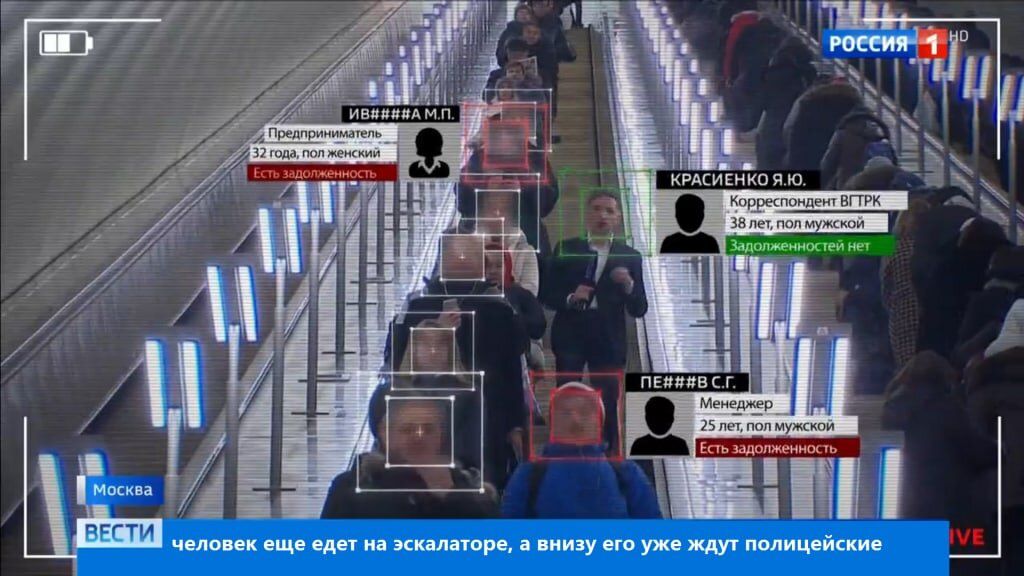
Screenshot from television programme on "Rossiya-1"
One of the most alarming aspects of the June raids in Moscow was the use of the state automated video analytics system "Sphera," a network of intelligent video cameras with facial recognition functions installed in the Moscow metro. Most detainees reported being detained in the metro. This happened "targeted": a few stations after migrants boarded the train, police entered the car and detained people, comparing them with photos on their phones.
According to Migration and Law lawyers, migrants were detained in the metro using the facial recognition system and photos from the migration service database provided to the police. According to lawyer Ivan Novikov, "the 'Sphera' system is intended to search for people wanted for crimes. Using 'Sphera' to detain other categories of citizens, including foreign ones who have not committed any criminal offenses and are not wanted by the police, is illegal."
Lawyers actively defending Migration and Law clients during the June raids believed these measures were partly to test the facial recognition system for mass detention use. Migrants detained in early June in Moscow and other regions were mainly sent to local Temporary Detention Centers for subsequent deportation from Russia. Within a week, these Centers were overcrowded, and detentions decreased but did not stop entirely. Even after June 9, several Migration and Law applicants were detained using the same facial recognition system.
What happened in other regions of Russia
In St. Petersburg, raids continue. In Gatchina, 60 people were placed in the Temporary Detention Center for forced expulsion from Russia, including a Ukrainian citizen. Previously, Ukrainians were not typically placed in Temporary Detention Center for Foreign Citizens.
In Kazan, police explained migrant detentions as part of mass inspections preparing for the BRICS Sports Games from June 12-23. According to a lawyer from Kazan working with Migration and Law, police take detained migrants to court, where judges order their deportation. Afghan citizens, one of the largest refugee diasporas in Russia, and a large group of Cuban citizens, were mainly affected.
In Voronezh, according to a local lawyer collaborating with Migration and Law, "migrants are sent to court in batches. They check markets, construction sites, and places with large gatherings of migrants." Judges also review the grounds for Russian citizenship acquisition by detainees' relatives to create grounds for annulment.
In the Tver region, inspections are conducted at construction sites and markets, detaining all workers for checks.
In the Saratov region, the regime against migrants has also intensified. According to a refugee assistance lawyer, 894 inspections were conducted in the residential sector and places with many foreign citizens since the beginning of 2024. 1,122 foreign citizens were identified as violating migration laws, and 865 were deported. Raids continue.
Moreover, after the Crocus City terrorist attack, Saratov region Governor Roman Busargin issued Decree No. 99, "On Establishing a Ban on Employing Foreign Citizens with Work Patents in Certain Economic Activities in Saratov Region for 2024." This decree bans foreign citizens with work patents from working as public transport drivers, taxi drivers, and in the food and beverage industry. This includes grocery store clerks, food service workers, and couriers delivering food.
In Rostov-on-Don, since early June, police have been conducting raids on migrants not only at construction sites and markets but also throughout the city. Police (both civil and military) search for foreign citizens violating migration registration and naturalized citizens who have not registered for military service.
